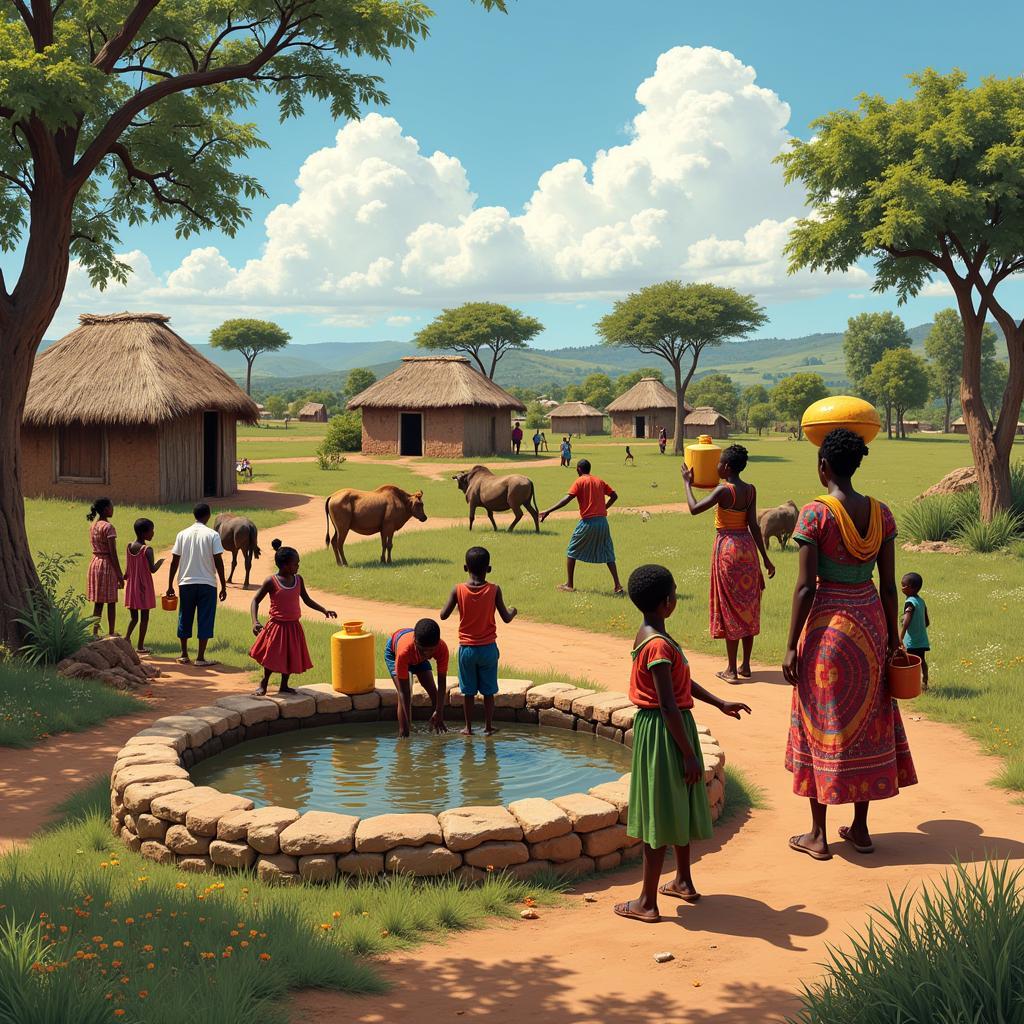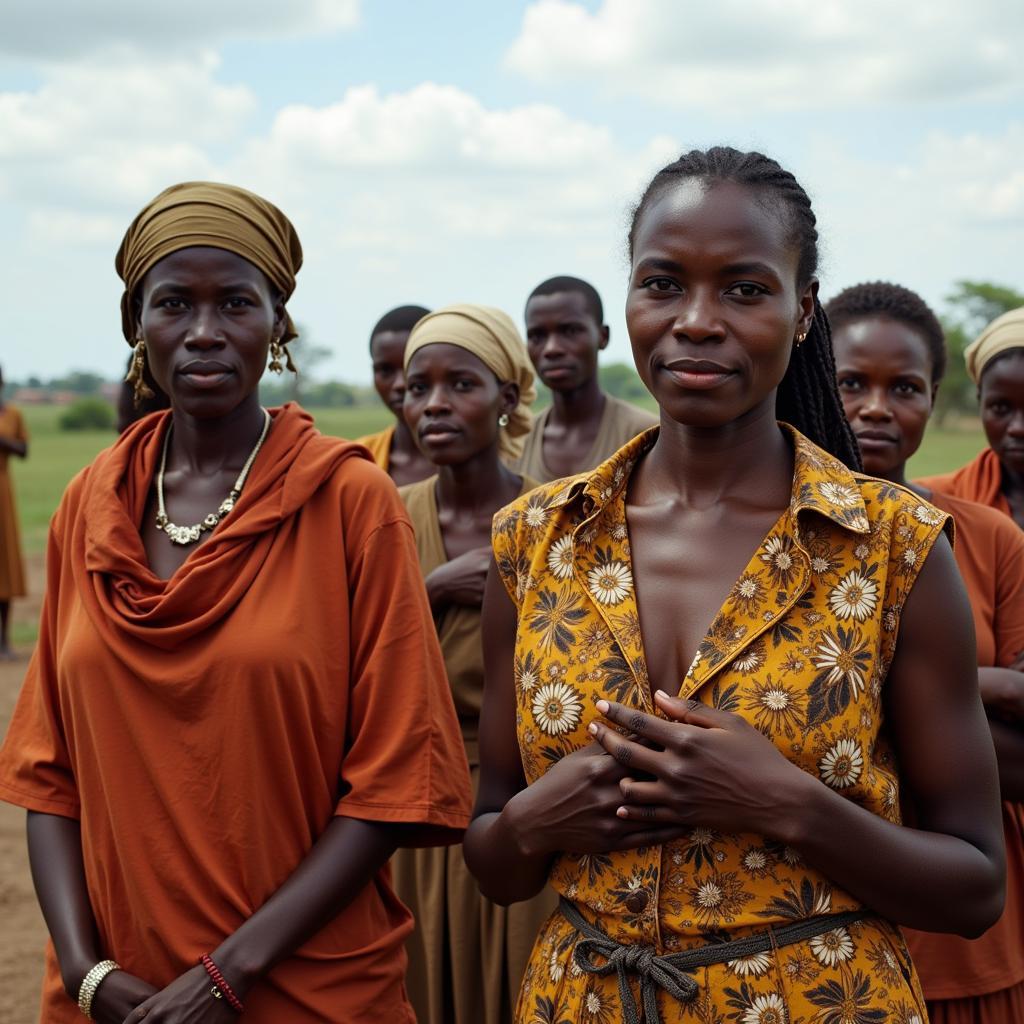Experiencing Authentic African Country Life
African Country Life offers a rich tapestry of experiences, deeply woven with ancient traditions, vibrant cultures, and breathtaking landscapes. From the bustling marketplaces to the serene savannas, this article delves into the heart of what it means to experience life in rural Africa. We’ll explore the diverse customs, daily routines, and unique challenges and joys that shape the lives of millions across this vast continent.
Daily Rhythms and Traditions in African Country Life
Life in the African countryside often revolves around the natural world. Sunrise and sunset dictate the rhythm of the day, influencing farming practices, social gatherings, and even spiritual beliefs. Family and community ties are incredibly strong, providing a crucial support network and fostering a deep sense of belonging. Many rural communities maintain ancestral traditions passed down through generations, including storytelling, music, dance, and unique craftsmanship. These cultural practices are not merely remnants of the past but vibrant expressions of identity and continuity. Check out more about African dressing style.
Farming remains a cornerstone of African country life, providing sustenance for families and communities. Traditional farming methods, often organic and sustainable, are still widely practiced. From millet and sorghum in the Sahel to cassava and yams in the tropical regions, diverse crops are cultivated across the continent, reflecting the unique environmental conditions and cultural preferences of each region. Beyond agriculture, many rural communities engage in other economic activities such as fishing, livestock rearing, and small-scale trading. These activities contribute to the local economy and ensure the survival of families.
 Daily Life in a Rural African Village
Daily Life in a Rural African Village
Challenges and Opportunities in African Country Life
While African country life offers a deep connection to nature, culture, and community, it also faces its share of challenges. Access to essential services such as healthcare, education, and clean water can be limited, particularly in remote areas. Infrastructure development is often inadequate, hindering economic growth and access to markets. Climate change poses a significant threat, with increasing droughts and unpredictable rainfall patterns impacting agricultural productivity and food security. Despite these challenges, the spirit of innovation and resilience shines brightly. Communities are constantly adapting to changing circumstances, developing new strategies for farming, water management, and income generation.
Many rural communities are embracing sustainable practices to protect their environment and improve their livelihoods. From using solar energy to implementing water conservation techniques, they are demonstrating a commitment to building a more sustainable future. Moreover, there is a growing recognition of the potential of tourism to create economic opportunities and preserve cultural heritage. By showcasing the beauty of their landscapes, the richness of their traditions, and the warmth of their hospitality, rural communities are attracting visitors from around the world and generating much-needed income. Learn more about African country rivers.
What are the core values of African country life?
At the heart of African country life are strong family and community ties, respect for elders, and a deep connection to the land and its resources.
How is climate change affecting African country life?
Climate change is impacting African country life through increased droughts, unpredictable rainfall, and reduced agricultural productivity.
The Future of African Country Life
African country life is at a crossroads. While facing significant challenges, it also holds immense potential for growth and development. By investing in education, healthcare, and infrastructure, supporting sustainable practices, and empowering local communities, we can ensure that the rich tapestry of African country life continues to thrive for generations to come. You can explore different aspects of African culture such as African country life style dance. The potential of African game skins and hides for sale represents another aspect of african country life. You may also be interested to read about the lesser known town of African country Maradoa.
Conclusion
African country life, with its vibrant traditions and close-knit communities, offers a unique perspective on the human experience. While facing challenges, the resilience and resourcefulness of rural communities shine through, paving the way for a future where tradition and innovation coexist harmoniously. Understanding and supporting African country life is not only about preserving cultural heritage, but also about investing in a future where sustainable development and prosperity are accessible to all.
FAQ
-
What are the primary economic activities in rural Africa?
Farming, livestock rearing, fishing, and small-scale trading. -
How do communities in rural Africa adapt to climate change?
By implementing water conservation techniques, adopting drought-resistant crops, and diversifying income sources. -
What role does tourism play in African country life?
Tourism provides economic opportunities, promotes cultural preservation, and creates jobs in rural communities. -
What are some of the challenges faced by rural communities in Africa?
Limited access to healthcare, education, and clean water, as well as inadequate infrastructure. -
What are the core values of African country life?
Strong family and community ties, respect for elders, and a deep connection to the land and its resources. -
How can we support the sustainable development of African country life?
By investing in education, healthcare, and infrastructure, and empowering local communities. -
What is the significance of preserving African country life?
It preserves cultural heritage, promotes biodiversity, and supports sustainable livelihoods.
For support, please contact Phone Number: +255768904061, Email: [email protected] or visit us at: Mbarali DC Mawindi, Kangaga, Tanzania. We have a 24/7 customer support team.
